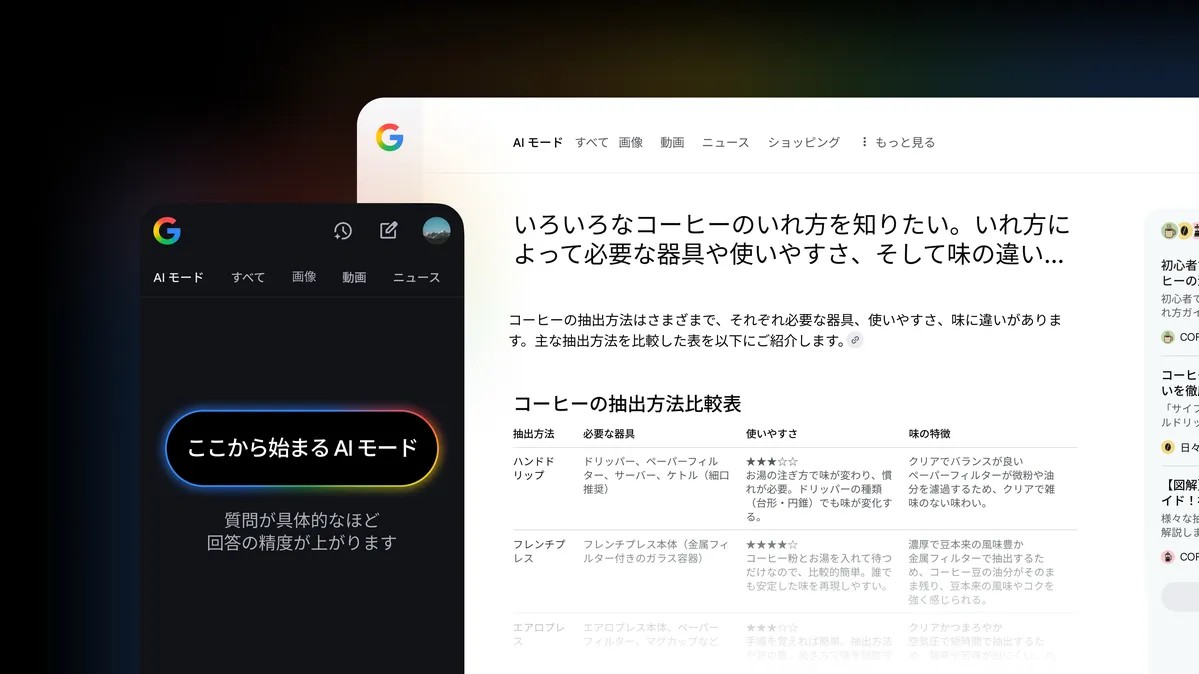Google Extends AI Mode to Five New Languages

Key Points
- Google AI Mode now supports Hindi, Indonesian, Japanese, Korean and Brazilian Portuguese.
- The feature was previously limited to English and has been rolled out globally to over 180 countries.
- Expansion leverages Google’s custom Gemini 2.5 Pro model with multimodal and reasoning abilities.
- Initial public rollout began in the United States, later expanding to the United Kingdom and India.
- Google claims stable website traffic from Search, yet a court filing notes rapid open‑web decline.
- Publishers hope multilingual AI Mode can help mitigate traffic losses.
- The update aims to provide locally relevant AI search results across new language markets.
Google announced that its AI Mode chatbot, integrated into Search, is now available in Hindi, Indonesian, Japanese, Korean and Brazilian Portuguese. The expansion follows a rapid rollout that began with an English‑only version, later opened to the United States, the United Kingdom and India, and now reaches users in more than 180 countries. The update leverages Google’s custom Gemini 2.5 Pro model and adds deeper multimodal and reasoning capabilities. While the company claims the web remains stable, a recent court filing acknowledges a rapid decline in open‑web traffic, a development publishers hope the multilingual AI features may help mitigate.
Multilingual Expansion of AI Mode
Google has opened its AI Mode chatbot to five additional languages: Hindi, Indonesian, Japanese, Korean and Brazilian Portuguese. Until now, the AI‑driven search experience was limited to English, making this the first expansion of language support for the feature. The move is intended to make the advanced AI capabilities more locally relevant and useful across diverse linguistic markets.
Rollout Timeline and Geographic Reach
The AI Mode feature first appeared in public tests, then expanded to everyone in the United States in May. Subsequent releases brought the service to the United Kingdom and India, and by last month the feature was present in more than 180 countries. The latest language addition broadens that global footprint, allowing users in regions where the new languages are spoken to interact with the AI chatbot directly in their native tongue.
Underlying Technology: Gemini 2.5 Pro
The expansion is powered by Google’s custom version of the Gemini 2.5 Pro model, which provides multimodal and reasoning capabilities. Earlier updates in July added support for the Gemini 2.5 Pro model and introduced Deep Search features. The integration of this advanced model enables the AI Mode to better understand nuanced queries and deliver more context‑aware answers in the newly supported languages.
Strategic Rationale
Google’s vice president of search product management emphasized that building a truly global search experience requires more than translation; it demands a nuanced understanding of local information. By deploying advanced language understanding through Gemini 2.5, the company aims to make its AI search capabilities locally relevant in each new language it supports.
Web Traffic Context
In parallel with the language rollout, Google has publicly stated that traffic to websites from Search remains relatively stable since the introduction of AI Overviews, suggesting that the web is thriving. However, a recent court filing revealed that the open web is already experiencing rapid decline. This contrast highlights the tension between perceived stability and documented challenges facing web publishers.
Implications for Publishers
Publishers who have been feeling the pinch of declining web traffic may view the multilingual AI Mode expansion as a potential avenue for renewed engagement. By offering AI‑driven search results in more languages, Google could drive additional traffic to content creators operating in those linguistic markets, potentially offsetting some of the losses associated with the broader web decline.
Looking Ahead
The language expansion represents a significant step toward a more inclusive AI search ecosystem. As Google continues to enhance its AI capabilities and broaden linguistic coverage, the impact on user experience, search dynamics, and the broader web ecosystem will become clearer.